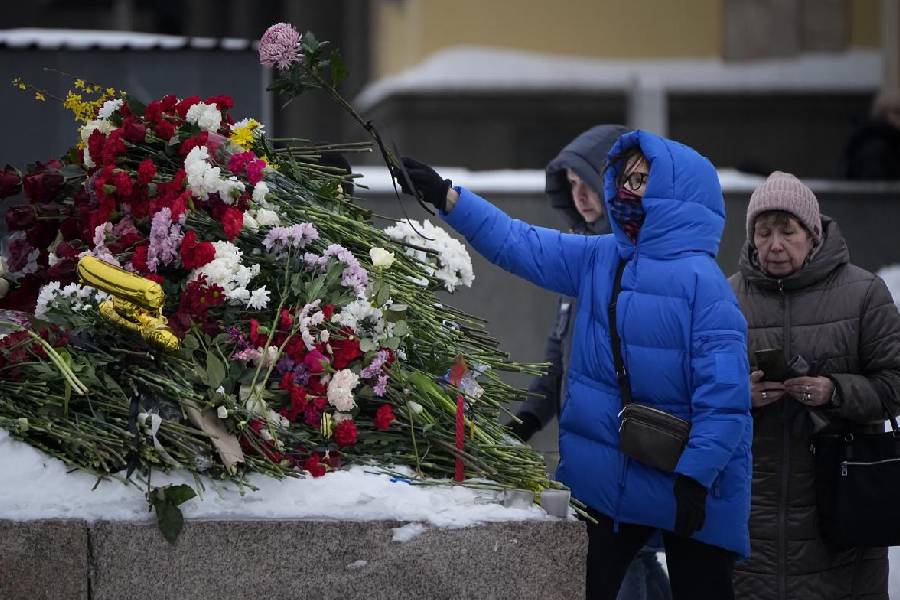A bishop who planned a public prayer for Russian Opposition leader Alexei Navalny was detained as he left his house. Two men were arrested for having a photograph of Navalny in a backpack. Another man who lay flowers at a memorial said he was beaten by police officers for the small act of remembrance.
As thousands of Russians across the country tried to give voice to their grief for Navalny, who died in a remote Arctic penal colony Friday, Russian police officers cracked down, temporarily detaining hundreds and placing more than two dozen in jail.
Until Navalny’s death at the age of 47, many observers had believed that the Kremlin would limit repression until after presidential elections in mid-March, when President Vladimir Putin is all but assured a fifth term. But many now fear that the arrests portend a broader crackdown.
“Those who are detaining people are afraid of any opinion that isn’t connected to propaganda, to the pervading ideology,” said Lena, 31, who brought a sticker to the Solovetsky Stone, a monument to victims of political repression in the Soviet Union. “Don’t give up,” read the sticker — part of a message Navalny once recorded in case of his death.
Lena, who gave only her first name for fear of reprisal, started to cry. “They are scared of Navalny in jail,” she said, “they are scared of dead Navalny, they are scared of the people who bring flowers here to the stone.”
She said: “That’s why it is important to continue doing what we are doing, what this man did.”
At least 366 people have been detained in 39 cities across Russia since Navalny was pronounced dead, with 31 of them ordered to spend up to 15 days in jail, according to OVD-Info, a Russian-based human rights group that tracks arrests. The rest were released after being held for a few hours.
In Samara, Russia’s ninth-largest city by population, those who came to remember Navalny were required to have their passports photographed before being allowed to place their flowers in the snow, according to Caution, News, an independent outlet run by a Russian socialite.
“Grief is a collective action, and any collective action is by definition political,” said Grigory Yudin, a Russian sociologist and research scholar at Princeton University. “In Russia, if a collective activity is not ordered, it is basically prohibited.”
The New York Times New Service

